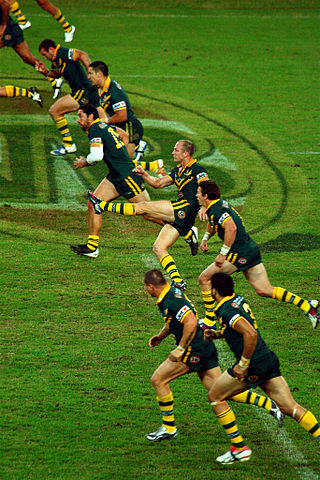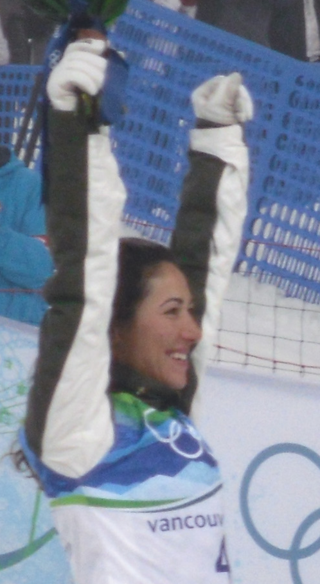
The Winter Olympic Games, also known as the Winter Olympics, is a major international multi-sport event held once every four years for sports practiced on snow and ice. The first Winter Olympic Games, the 1924 Winter Olympics, were held in Chamonix, France. The modern Olympic Games were inspired by the ancient Olympic Games, which were held in Olympia, Greece, from 776 BCE to 394 CE. The Baron Pierre de Coubertin of France founded the International Olympic Committee (IOC) 1,500 years later in 1894, leading to the first modern Summer Olympic Games in Athens, Greece in 1896. The IOC is the governing body of the Olympic Movement, with the Olympic Charter defining its structure and authority. The original five Winter Olympic Sports were bobsleigh, curling, ice hockey, Nordic skiing, and skating. The Games were held every four years from 1924 to 1936, interrupted in 1940 and 1944 by World War II, and resumed in 1948. Until 1992, the Summer Olympic Games and the Winter Olympic Games were held in the same year. A decision to change this was made in 1986, when during the 91st International Olympic Committee session, IOC members decided to alternate the Summer Olympic Games and the Winter Olympic Games on separate four-year cycles in even-numbered years. Also, at that same congress it was decided that 1992 Winter Olympics would be the last to be held in the same year as the Summer Games and that to change the rotation, the games that would be held in 1996 would be brought forward by two years, being scheduled to 1994. After those games, the next were to be held in 1998 when the four-year Olympic Cycle resumed.

The 2002 Winter Olympics, officially the XIX Olympic Winter Games and commonly known as Salt Lake 2002, were an international winter multi-sport event that was held from February 8 to 24, 2002, in and around Salt Lake City, Utah, United States.

Australia has sent athletes to every Summer Olympic Games, as well as every Winter Olympics except 1924–32 and 1948. In 1908 and 1912 Australia competed with New Zealand under the name Australasia.
Steven John BradburyOAM is an Australian former short-track speed skater and four-time Olympian. He won the 1,000 m event at the 2002 Winter Olympics. He was the first athlete from Australia and also the first from the Southern Hemisphere to win a Winter Olympic gold medal, and he was also part of the short-track relay team that won Australia's first Winter Olympic medal, a bronze in 1994. The nature of his gold medal win - a relative veteran and rank outsider, he came through from last place in the final straight as the entire field ahead crashed out on the final corner - became iconic of underdog success and perseverance at the Olympic Games.

The United States sent 204 athletes to the 2006 Winter Olympics in Turin, Italy. Chris Witty, a four-time Olympian, who competed in both Summer and Winter games, and won a gold medal in speed skating at the 2002 Games, served as the flag bearer at the opening ceremonies. Speed skater Joey Cheek, who won gold in the 500 m and silver in the 1000 m, was the flag bearer at the closing ceremonies. One athlete, Sarah Konrad, became the first American woman to compete in two different disciplines at the same Winter Olympics – biathlon and cross-country skiing.

Australia first competed in the Winter Olympic Games in 1936 in Garmisch-Partenkirchen, and has participated in every games since, with the exception of the 1948 Games in St. Moritz.
Alisa Peta Camplin, is an Australian former aerial skier who won gold at the 2002 Winter Olympics, the second ever winter Olympic gold medal for Australia. At the 2006 Winter Olympics, Camplin finished third to receive a bronze medal. She is the first Australian skier to win medals at consecutive Winter Olympics, making her one of Australia's best skiers.

Australia sent a delegation to compete at the 1952 Winter Olympics from 14 to 25 February 1952 in Oslo, Norway. This was the nation's second appearance at the Winter Olympic Games with their first being in 1936.

Australia competed at the 2006 Winter Olympics in Turin, Italy. The team of 40 athletes was the largest ever for Australia, surpassing the team of 31 that participated at the 1960 Winter Olympics.

Australia competed at the 1992 Winter Olympics in Albertville, France. 23 athletes competed, participating in alpine skiing, biathlon, bobsleigh, cross-country skiing, figure skating, freestyle skiing, luge, short track speed skating, and speed skating. Freestyle skiing and short-track speed skating were medal events for the first time, and Australia has competed in these events in every games since. Australia's best result at these games was seventh in the 5000 metres short-track relay.

Australia competed at the 1994 Winter Olympics in Lillehammer, Norway.

Canada competed at the 2002 Winter Olympics in Salt Lake City, Utah, United States. Canada has competed at every Winter Olympic Games.

Switzerland competed at the 2006 Winter Olympics in Turin, Italy. This was the confederation's largest Winter Olympics team ever, because two ice hockey teams qualified.

Winter sports in Australia encompasses a great variety of activities across the continent of Australia, including winter sports played in snow and ice such as ice hockey. Climate varies considerably from the tropical North to temperate South in Australia, and sporting practices vary accordingly. Ice and snow sports like Skiing in Australia are conducted in the high country of the Australian Alps and Tasmanian Wilderness. Australia has relatively low mountain ranges, but a long history of participation in recreational skiing and the Winter Olympic Games. Australians have won olympic gold in ice skating, skiing and snow-boarding events. Australia's generally flat geography and usually mild winter climate otherwise provide ideal conditions for international non-snow/ice winter sports and team games like rugby union football, rugby league football, and association football (soccer), which are all popular sports during the Australian winter and in which Australia has enjoyed considerable international success. Australian rules football is a home-grown winter football code with a wide following throughout Australia. Many other sports are also played or watched in Australia through the winter season.
Jacqueline Cooper is an Australian motivational speaker and retired freestyle skier.

Lydia Lassila is an Australian Olympic freestyle skier gold medalist who competed in the 2002, 2006, 2010, 2014 and 2018 Winter Olympic Games. She is the 2010 Olympic champion and the 2014 bronze medalist in aerials.

Mongolia sent a delegation to compete at the 2002 Winter Olympics in Salt Lake City, United States from 8–24 February 2002. This was Mongolia's tenth time participating in a Winter Olympic Games. The delegation consisted of four athletes, two cross-country skiers; Davaagiin Enkhee and Jargalyn Erdenetülkhüür, as well as two short-track speed skating competitors; Battulgyn Oktyabri and Ganbatyn Jargalanchuluun. Erdenetülkhüür placed 63rd in the men's 15 kilometre classical cross-country race; he was the only one of the four to compete in an event final.

Veronika Bauer is a Canadian freestyle skier.
The men's 1000 metres in short track speed skating at the 2002 Winter Olympics took place from 13 to 16 February at the Salt Lake Ice Center. This event is remembered for the victory of Australian Steven Bradbury, who benefited from all four other skaters in the final going down ahead of him, while Bradbury stayed on his feet and won gold. It was the first ever Winter Olympics gold medal for Australia.











